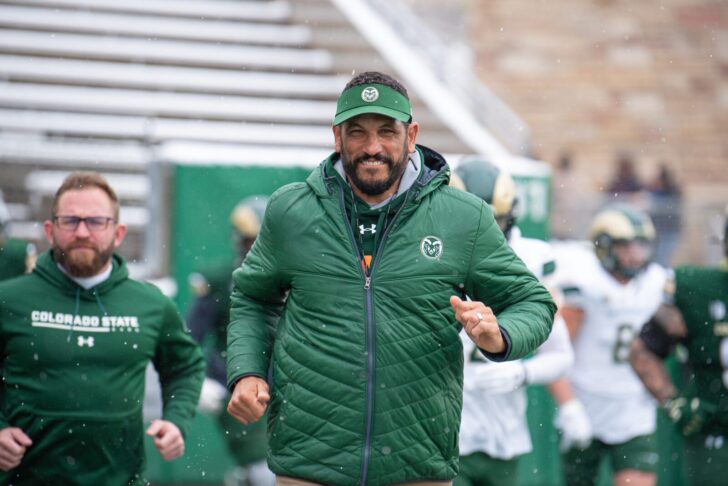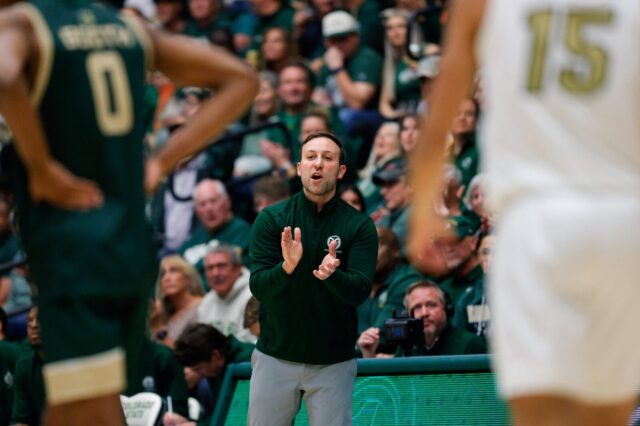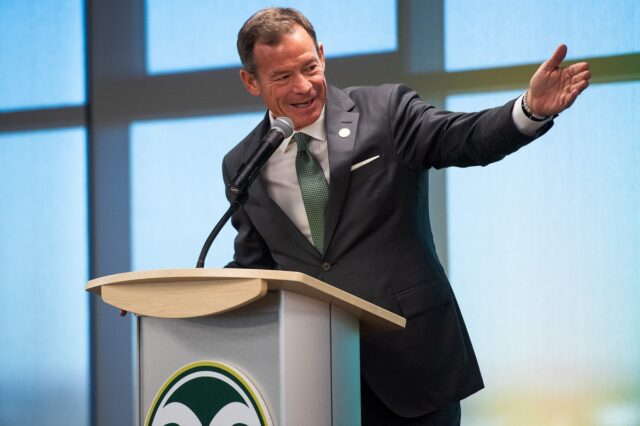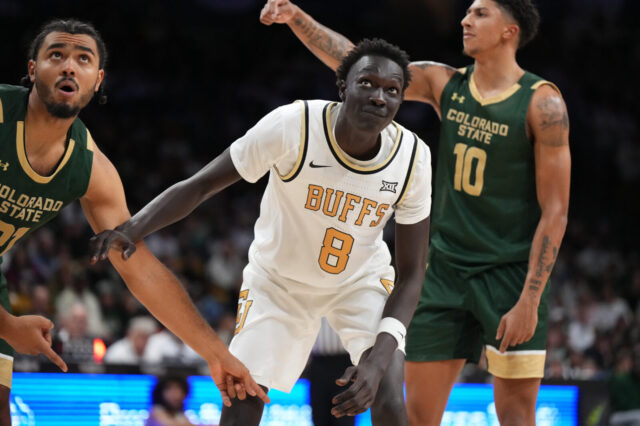Strike 3: Jay Norvell named names.
The Colorado State Rams football coach, entering his third season in Fort Collins and expected to produce the school’s first bowl team in seven seasons, isn’t making any friends in places like Manhattan, Kan. and elsewhere, where actively trying to poach quality players off the rosters of smaller programs is becoming a big part of the roster rebuilding process.
At the recently completed Mountain West media day, Norvell was asked about standout quarterback Bryden Fowler-Nicolosi being approached by numerous schools and asked about the idea of transferring after last season, when the freshman QB threw for more than 3,400 yards. The coach didn’t hold back with his answer.
“He said a guy from Kansas State called him, offered him $600,000 because they lost their quarterback, if he got in the (transfer) portal,” Norvell said. “And I’m not accusing Kansas State of anything. I’m just telling you what the kid told me. If they don’t want their name thrown in it, I think they should probably get a handle on their people. But there’s a lot of that going on in college football, and that’s just the way things are right now.”
Tampering is against the rules in professional football, and while it’s also against the rules in the professionalized college game now too, it’s almost unenforceable. Players aren’t going to “turn in” rival recruiters who call waving cash at them. Most of them are simply accepting the offers. Nicolosi and fellow Ram Tory Horton – who Norvell claimed Texas A&M and Ole Miss were pursuing – are the exception, not the rule.
For the Power Four schools (soon to be the Power Three when Florida State, Clemson, Miami and others leave the Atlantic Coast Conference for dead after the coming school year) they’d be fine if the current level of policing involved with tampering stayed the same. They’re all doing it, and they’re all victims of it, so it’s pretty much a wash. But the smaller Group of Five programs like Colorado State? They’re becoming the big losers. Most of the time, they can’t match or even come close to the offer that the P4 programs – more accurately their boosters – are making, and oftentimes lose their top players.
With the college game continuing to trend toward becoming a full-fledged professional counterpart to the NFL, it’s probably time to start implementing some NFL-style policies that can put the brakes on the rampant mess that the rudderless transfer portal has caused.
For starters, colleges – who very soon will have to start treating student athletes as “employees” and not just students – could start making scholarships – as long as they continue to exist – into four year contracts, limiting transferring to situations that involve a coaching change or something else earth-moving within a program. Then we will see which players are truly “committed,” because when a player accepts a scholarship/employment offer from a particular school, he’ll be contractually bound to stay and play out his contract.
That would put an end to the portal, and to tampering, at least in its current form.
And that would be a big win for programs like Norvell’s.




